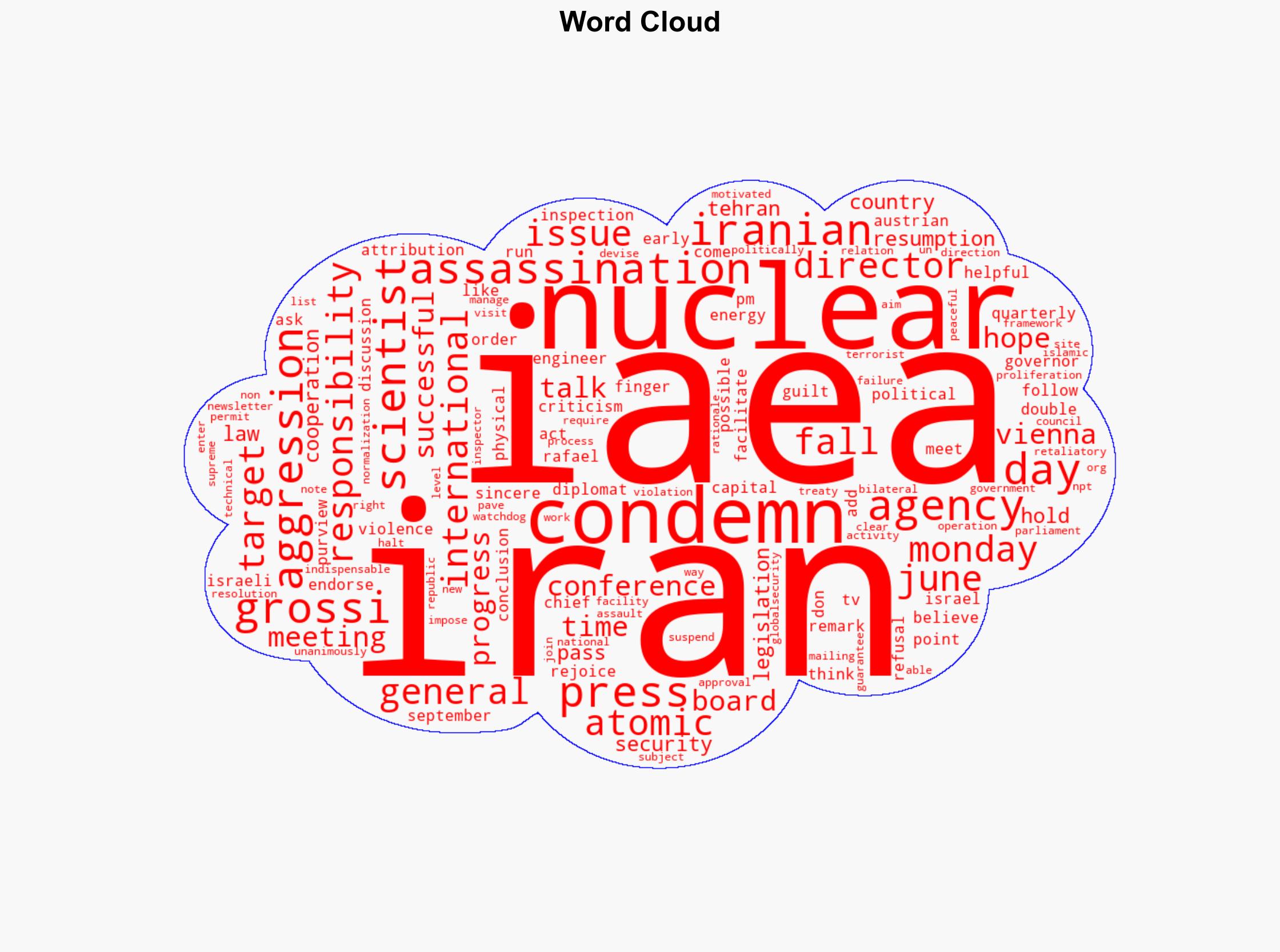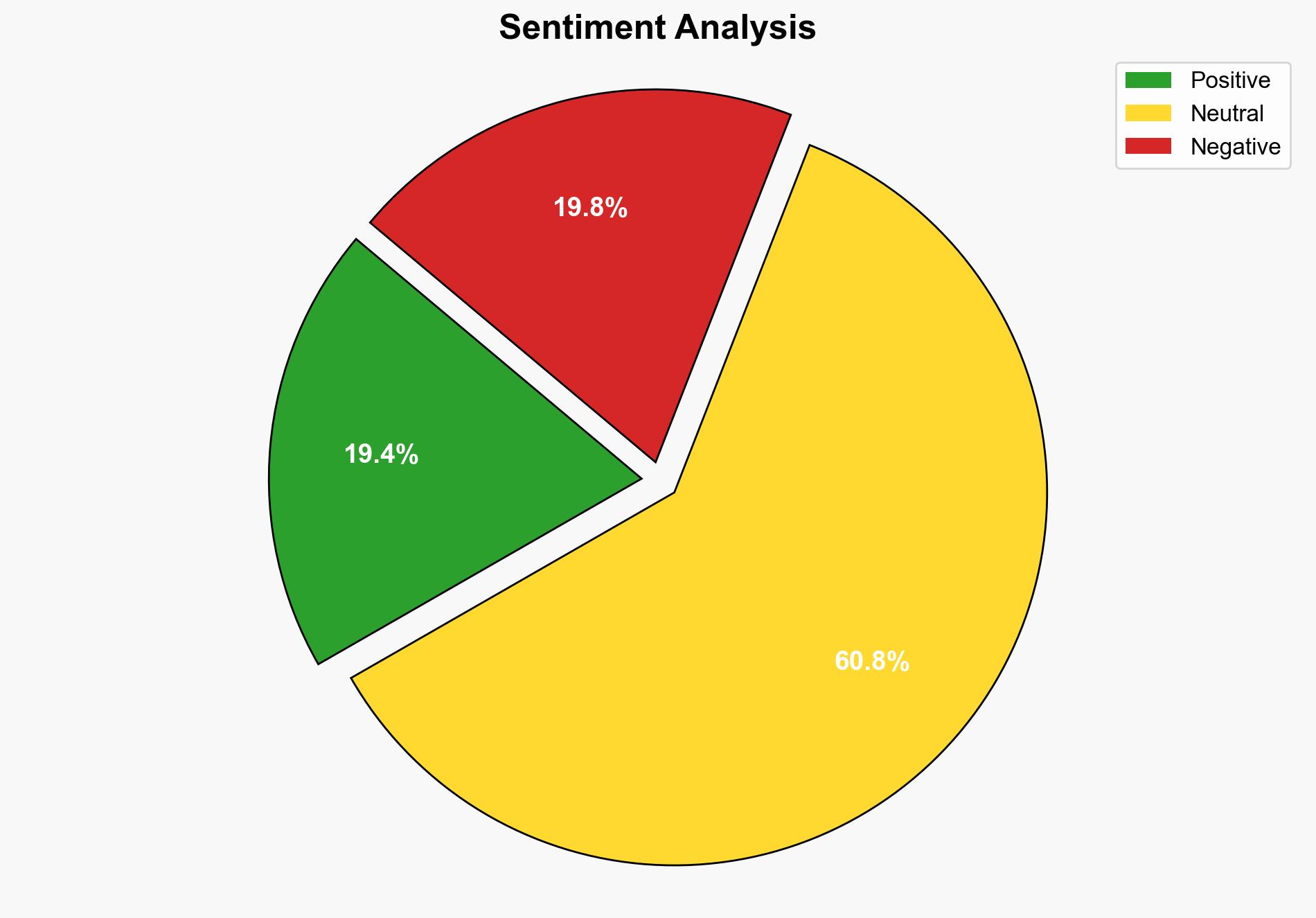IAEA chief says condemning Israeli assassination of Iran’s nuclear scientists not his responsibility – Globalsecurity.org
Published on: 2025-09-09
Intelligence Report: IAEA chief says condemning Israeli assassination of Iran’s nuclear scientists not his responsibility – Globalsecurity.org
1. BLUF (Bottom Line Up Front)
The most supported hypothesis is that the IAEA is maintaining a neutral stance to preserve its diplomatic role and facilitate ongoing negotiations with Iran. Confidence level is moderate due to limited transparency in diplomatic discussions. Recommended action is to monitor IAEA-Iran interactions closely for shifts in policy or rhetoric that could indicate changes in diplomatic posture.
2. Competing Hypotheses
1. **Hypothesis A**: The IAEA’s refusal to condemn the assassinations is a strategic decision to maintain neutrality and facilitate ongoing negotiations with Iran regarding nuclear inspections.
2. **Hypothesis B**: The IAEA’s stance is influenced by external political pressures, possibly from Western countries, to avoid taking a position that could be perceived as anti-Israel.
Using Analysis of Competing Hypotheses (ACH), Hypothesis A is better supported. The IAEA’s mandate is technical and diplomatic, focusing on nuclear inspections rather than political condemnations. Hypothesis B lacks direct evidence but cannot be entirely dismissed due to the geopolitical context.
3. Key Assumptions and Red Flags
– **Assumptions**: The IAEA’s primary role is technical oversight, not political commentary. It assumes that neutrality will aid in diplomatic negotiations.
– **Red Flags**: Lack of explicit statements from other international bodies on the issue could indicate broader geopolitical maneuvering. The absence of direct evidence of external pressure on the IAEA is a blind spot.
4. Implications and Strategic Risks
The IAEA’s stance could impact its credibility and effectiveness in future negotiations, particularly if perceived as biased. There is a risk of escalating tensions between Iran and Israel, potentially affecting regional stability. The situation could also influence Iran’s cooperation with international nuclear agreements, impacting global non-proliferation efforts.
5. Recommendations and Outlook
- Monitor IAEA communications for shifts in tone or policy that may indicate changes in diplomatic strategy.
- Engage in diplomatic dialogues to encourage transparency and reaffirm the IAEA’s neutral role.
- Scenario Projections:
- Best Case: Continued neutrality leads to successful negotiations and enhanced cooperation with Iran.
- Worst Case: Perceived bias undermines the IAEA’s credibility, leading to reduced cooperation from Iran.
- Most Likely: The IAEA maintains its current stance, with gradual progress in negotiations.
6. Key Individuals and Entities
– Rafael Grossi
– International Atomic Energy Agency (IAEA)
– Iran’s Supreme National Security Council
7. Thematic Tags
national security threats, geopolitical dynamics, nuclear non-proliferation, diplomatic negotiations





